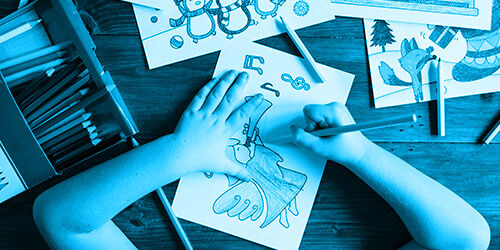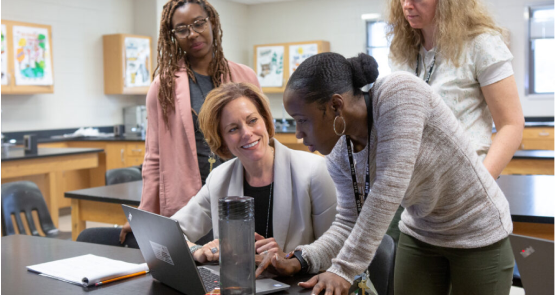Parents' Guide
The Reboot Foundation Parents' Guide to Critical Thinking
-
 General Introduction
General Introduction
-
 Ages 5 to 9
Ages 5 to 9
-
 Ages 10 to 12
Ages 10 to 12
-
 13 & Older
13 & Older
INTRODUCTION
Why is critical thinking important? In short, because thinking skills are needed to navigate today’s world. Typically, learning how to think is something we reserve for upper-level students in high school or college. This is a missed opportunity. We should pay more attention to child thinking. Children think more and at a higher level than we typically give them credit for, and critical thinking skills are vital for children’s general development and, ultimately, for the health of society as a whole.INTRODUCTION
Critical thinking must be built from a solid foundation. Although children aged five to nine are not yet ready to take on complicated reasoning or formulate detailed arguments, parents can still help their children lay a foundation for critical thinking.
- Introduction
- . Logic and Critical Thinking
 Metacognition
Metacognition - Everyday Reasoning
 Logical Proof and Factual Proof
Logical Proof and Factual Proof - Preparing Kids to Think Critically
 New Perspectives
New Perspectives - The Importance of Self-Esteem
- Promoting Self-Esteem
 Developing Self-Esteem
Developing Self-Esteem  Risk-Taking
Risk-Taking - The Role of Emotions
- Managing Emotions
 Emotional Management
Emotional Management - Critical Thinking and Social Life
 Independent Thinking
Independent Thinking - Case Studies | Age 5 to 9 Quiz | Age 5 to 9
 Case Study
Case Study
INTRODUCTION
Critical thinking must be built from a solid foundation. Although children aged five to nine are not yet ready to take on complicated reasoning or formulate detailed arguments, parents can still help their children lay a foundation for critical thinking.
- Introduction
- Cognitive Biases
- The Development of Reason
 Identifying Patterns
Identifying Patterns - Universal Reasoning
 Universal Reasoning
Universal Reasoning - Puberty and Adolescence
 Puberty vs. Critical Reasonning
Puberty vs. Critical Reasonning - Adolescent Social Life
- The Digital Universe
- Video Games
 Video-Game Addiction
Video-Game Addiction - Web Browsing
 Searching the Web
Searching the Web  Browsing and Marketing
Browsing and Marketing - Case Studies | Age 10 to 12 Quiz | Age 10 to 12
INTRODUCTION
For children aged 13 and older, the development of critical thinking continues to build from the skills acquired and the challenges faced in the first two developmental stages. These skills must continue to be reinforced as the child matures.
- Introduction
- Formal Logic
- Concepts and Flawed Reasoning
 Intension and Extension
Intension and Extension  Flawed Reasoning
Flawed Reasoning - Becoming an Individual
- Teenage Negativity
 Individuation and Belonging
Individuation and Belonging - Social Critique and Belonging
- Analyzing Sources
 Nasreddin’s Sophisms
Nasreddin’s Sophisms  Paralogisms
Paralogisms - The Critical Mind
 Fact-Checking
Fact-Checking  Verifying Sources
Verifying Sources - Critical Thinking and Progress
- Case Studies | Age 13+ Quiz | Age 13+






